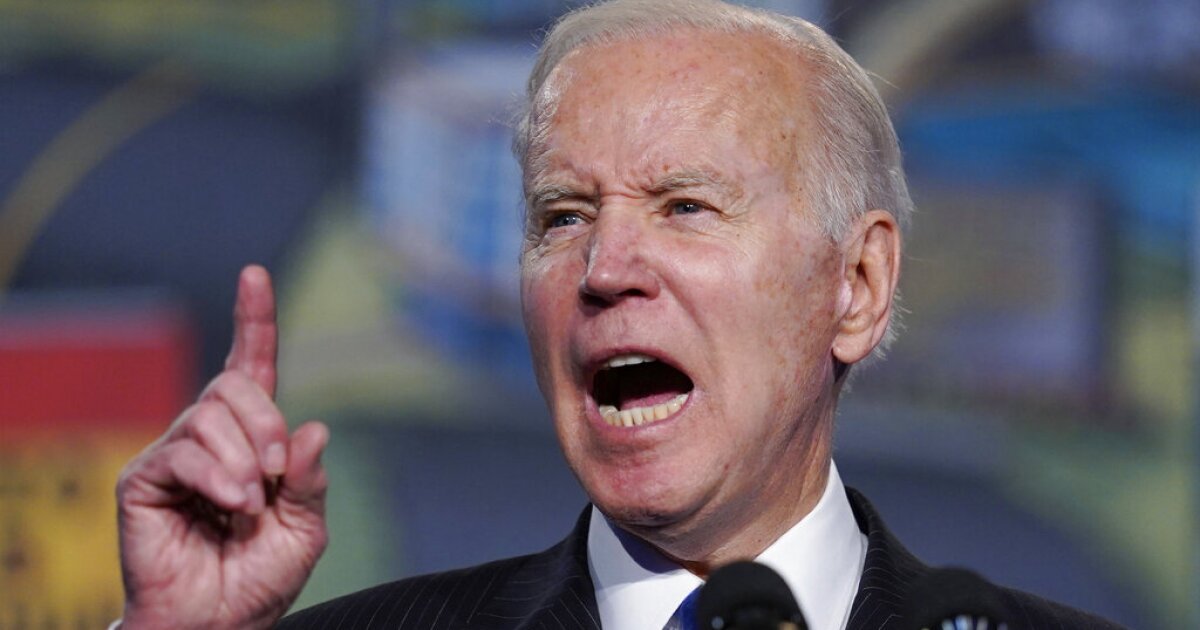

A decision by Gulf energy producers to cut oil output in the lead-up to the midterm elections has placed the White House at the center of a public spat with Saudi Arabia, leaving President Joe Biden “humiliated” after his outreach to the kingdom this summer.
The move has hardened Democratic opposition to Saudi Arabia, with Biden’s allies in Congress threatening in response to reshape the two countries’ decadeslong security partnership.
Further roiling U.S.-Saudi relations is the kingdom’s claim that Biden sought to delay the cut by one month for political reasons. The White House denied that domestic politics were a factor as it privately urged members of the OPEC+ oil producers coalition to reverse course. Citing the war in Ukraine, the United States accused Riyadh of siding with Russian President Vladimir Putin as tighter supply could lead to higher energy prices, a major source of income for the Russian war economy.
BIDEN LENDS BOOST TO ‘SOON-TO-BE MS. MAYOR’ KAREN BASS IN LOS ANGELES
But higher energy costs could also add to the inflationary pressures hurting Biden and Democrats politically. Analysts warned earlier this year that the president would need to secure months of strong economic news to persuade voters that he had control of the issue.
While Saudi Arabia has sharply rejected U.S. criticism of the cuts, during an appearance on state television this week, one analyst conceded the “sensitive” timing of the move. A one-month delay would pitch the next oil producer meeting within days of the November elections, too late to have much of an effect on prices and voters.
Facing a torrent of Democratic frustration, Biden promised that the U.S. “will take action” to reevaluate the U.S.-Saudi relationship and vowed “consequences” for the kingdom.
“They’re in a bind, they need to do something significant,” said Aaron David Miller, a former State Department Middle East analyst and negotiator.
In part, Biden’s strategy hinged on repairing ties with Saudi Arabia, a major oil producer and OPEC+ partner whose production output could help bring down prices. Arriving in Jeddah, Saudi Arabia, this summer, Biden indicated he was hopeful for U.S.-Saudi cooperation. Though it drew backlash, a fist-bump with Crown Prince Mohammed bin Salman, the kingdom’s de facto leader, appeared to cement the positive feeling.
That goodwill has collapsed as Biden prepares to face Americans and allies worried about the cost of food and energy this winter.
“His personal credibility is on the line,” Miller said of Biden. “The president has been humiliated.”
Yet there were warning signs as Biden returned absent any production guarantees. “This is a kiss-the-ring moment, and he walked away with nothing,” Miller said.
Saudi officials have argued that any production decision is based on projected supply and demand. Washington disputes this assessment. After Riyadh informed the White House of its plan, the Biden administration argued that a cut was unwarranted and suggested Riyadh delay its decision by one month.
“We presented Saudi Arabia with analysis to show that there was no market basis to cut production targets and that they could easily wait for the next OPEC meeting to see how things developed,” National Security Council spokesman John Kirby said in a statement. The U.S. political landscape wasn’t a factor, White House officials insist.
Biden’s response to rising energy costs has frustrated Republicans urging the administration to help boost U.S. energy production. If Republicans secure control of Congress in the coming elections, the White House’s handling of the issue could prompt new inquiries.
For now, Democrats have urged Biden to scrap decades of policy, with Sen. Dick Durbin (D-IL) asserting that Saudi Arabia had “never” been a reliable U.S. partner. Senate Foreign Relations Chairman Bob Menendez (D-NJ) urged Biden to “immediately freeze all aspects” of U.S.-Saudi relations, including halting new arms sales.
CLICK HERE TO READ MORE FROM THE WASHINGTON EXAMINER
Miller said he was skeptical that Biden could do much to alter the crown prince’s thinking.
“Whatever he does, I don’t think it’s going to fundamentally alter MBS’s calculations,” Miller said. “The reality is that we are only one of MBS’s factors.”







